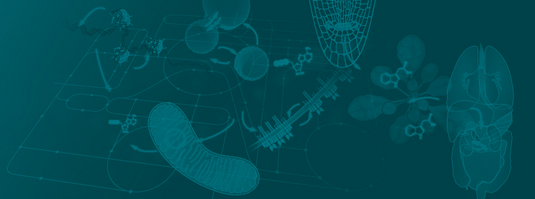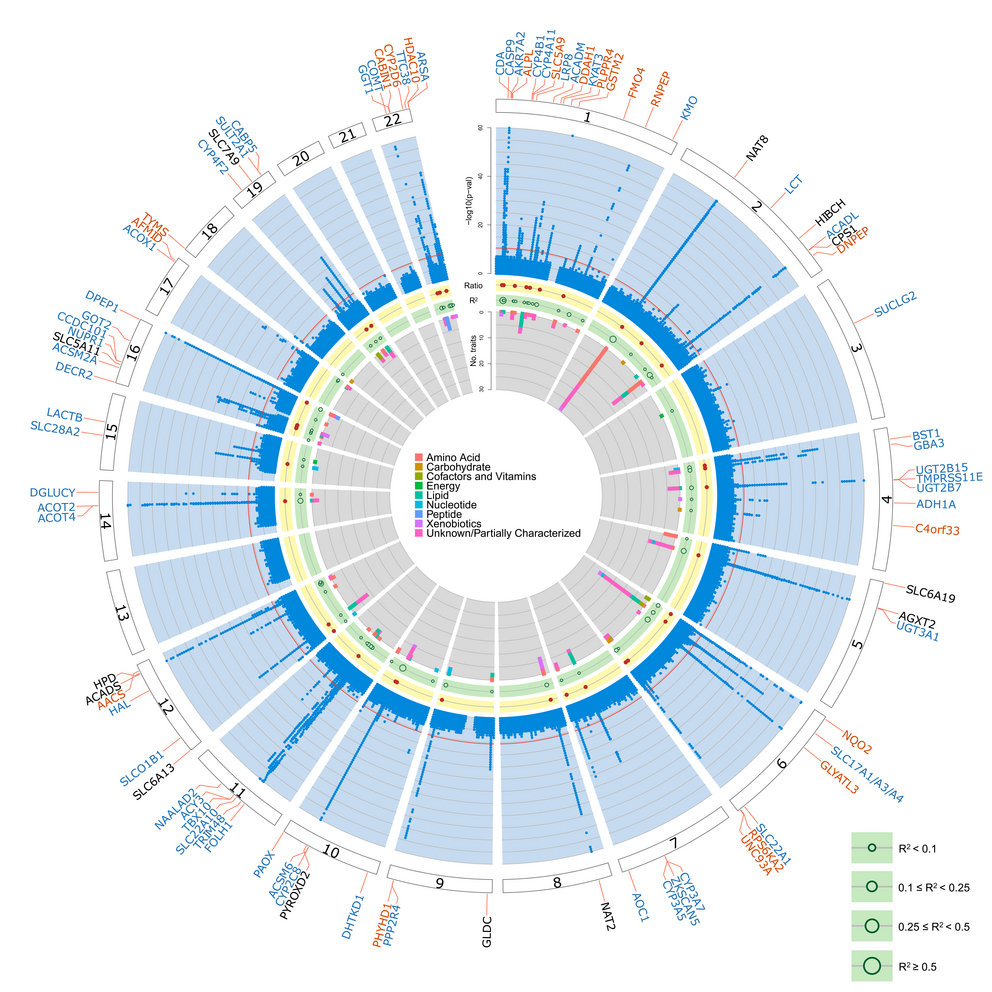Prof. Dr. Anna Köttgen (CIBSS-AI), Institute of Genetic Epidemiology (University Medical Center Freiburg, Faculty of Medicine)
Metabolites are increasingly recognized as important signalling molecules that mediate intracellular as well as interorgan communication.As such, it is important to understand their generation and breakdown, their transport across membranes, and how their encoded information is propagated across time and scales. The mechanisms underlying these processes are unknown for the majority of the >20,000 detected metabolites listed in the Human Metabolome Database.Since metabolite levels are strongly genetically determined, forward genetic screens of metabolite levels in large population studies are a powerful means for the identification of genes that encode for enzymes acting on these signalling molecules, and of transporters and sensor proteins that propagate their information. Work in CIBSS has shown that members of the human mitochondrial high-confidence proteome are strongly overrepresented among genes that when mutated cause human metabolic diseases. The overarching goal of this project is to systematically place members of the human mitochondrial high-confidence proteome into the context of our genetic studies of the metabolome to detect candidate substrates, promote elucidation of their function, and provide links to human diseases to better understand the role of metabolites as signaling molecules. Through its three scientific aims, this project will contribute novel insights into the central CIBSS question of how mitochondria integrate signals from outside and inside cells with cellular metabolism, and how disturbances of such processes link to human diseases.






